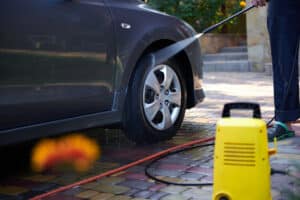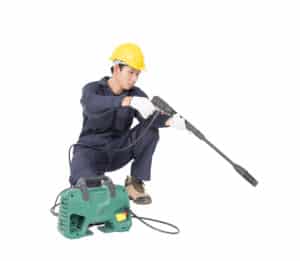Do I Need to Winterize My Electric Pressure Washer?
Key Takeaways
- Winterizing an electric pressure washer is essential for its longevity and performance.
- The benefits of winterizing include preserving the pump, preventing cold weather damage, and extending the lifespan of the pressure washer.
- Not winterizing can result in a weakened pump, potential failure of components, and rust and mineral build-up.
Winterizing an electric pressure washer is an essential step to ensure its longevity and performance. By taking the necessary precautions, you can protect your pressure washer from freezing temperatures, prevent damage to its components, and avoid potential issues when spring arrives.
Let’s explore the benefits of winterizing, the steps involved in the process, and the consequences of not winterizing your electric pressure washer.
The Benefits of Winterizing
There are several advantages to winterizing your electric pressure washer:
- Preserving the Pump: By winterizing your pressure washer, you can protect the pump from freezing water, which can cause damage and reduce its efficiency.
- Preventing Cold Weather Damage: Freezing temperatures can lead to cracked hoses and fittings, damaged seals, and other issues. Winterizing helps prevent these problems.
- Extending Lifespan: Properly winterizing your pressure washer can extend its lifespan by preventing rust and mineral build-up, which can cause premature wear on components.
- Easy Spring Start-Up: By winterizing, you ensure that your pressure washer is ready to use with minimal maintenance when the warmer months arrive.
How to Winterize an Electric Pressure Washer
Now that we understand the benefits, let’s go through the step-by-step process of winterizing your electric pressure washer:
Step 1: Deal with Detergent Tanks
Start by getting rid of any leftover detergent in the tank. Depending on your pressure washer model, you can either fill the tanks with hot water or place the siphon hose in a gallon bucket of hot water.
Step 2: Clean Out the Detergent
Next, hook up the pressure washer to a hose and run it to remove as much detergent as possible. This will help prevent any residue from causing issues during storage.
Step 3: Drain the Water
Make sure to drain all of the water from the hose and spray gun attachment. Any remaining water can freeze and cause damage to the pressure washer.
Step 4: Add Antifreeze
Follow the instructions on the antifreeze bottle and in the user’s manual to add the appropriate amount of antifreeze. This will help protect the internal seals and prevent freezing.
Step 5: Store in a Dry Place
Finally, cover up the pressure washer and store it in a dry area for the winter. This will prevent moisture from accumulating and causing damage.
The Consequences of Not Winterizing
Choosing not to winterize your electric pressure washer can have several negative consequences:
- Weakened Pump: Without proper winterization, the pump may become weak and fail to provide the necessary pressure when you need it.
- Potential Failure: Components of the pressure washer, such as hoses, fittings, and seals, can suffer damage from freezing temperatures, leading to potential failure.
- Rust and Mineral Build-Up: If water is not properly drained, rust and mineral build-up can occur, causing premature wear on the pressure washer’s components.
Conclusion
Winterizing your electric pressure washer is a crucial step to ensure its longevity and performance. By following the necessary steps, you can protect your pressure washer from freezing temperatures, prevent damage to its components, and be ready to use it with ease when spring arrives.
Related Websites
FAQs:
Q: Do I need to winterize my electric pressure washer?
Yes, winterizing your electric pressure washer is important to prevent potential damage and extend its lifespan. By following the proper steps to winterize, you can protect your equipment from freezing temperatures and ensure it is ready to use when warmer weather returns.
Q: What is the significance of winterization for pressure washers?
Winterization is crucial in preserving the integrity of your pressure washer during colder months. Without proper winterization, water left inside the system can freeze, expand, and cause damage to the pump, hoses, and other components. By winterizing, you can avoid costly repairs and maintain optimal performance.
Q: How do I winterize an electric pressure washer?
To winterize your electric pressure washer, follow these steps:
1. Drain and flush the system.
2. Disconnect and store the hoses properly.
3. Clean and dry the pressure washer.
4. Remove any remaining water from the pump.
5. Store the pressure washer in a protected location. By performing these steps, you can ensure that your pressure washer is protected from winter-related damage.
Q: What are the benefits of winterizing my electric pressure washer?
Winterizing your electric pressure washer offers several benefits, including extending its lifespan. By preventing damage from freezing water, you can avoid costly repairs and replacements. Additionally, winterization helps to maintain optimal performance, ensuring your pressure washer is ready to use when you need it.
Q: Are there alternative options for winterizing my electric pressure washer?
Yes, there are alternative options for winterizing your electric pressure washer. You may consider using an antifreeze solution designed specifically for pressure washers. Another option is to use pump protectors or storage additives, which can help prevent damage from freezing temperatures. It is recommended to consult the manufacturer’s recommendations and user manual for the best alternative option for your specific pressure washer model.





